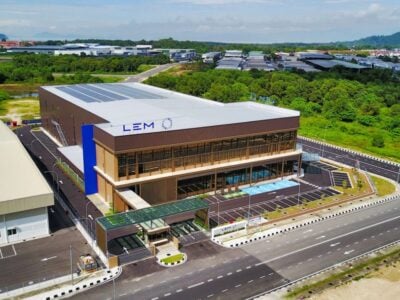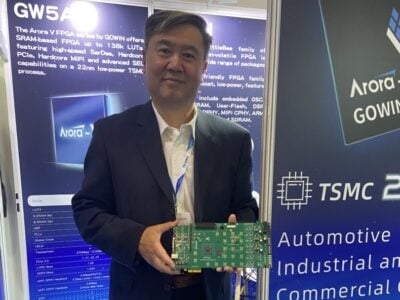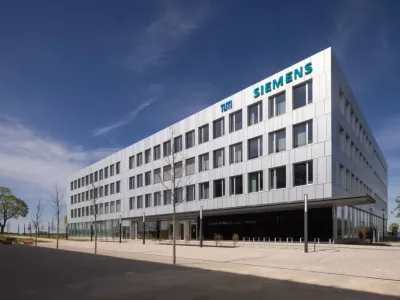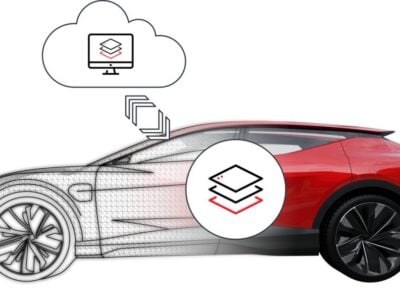
Opinion: Nvidia’s bad deal is not yet done
What the agreement shows is that Jensen Huang, founder and CEO of Nvidia (Santa Clara, Calif.), was keen to use his firm’s strong share price and pandemic-driven cash flow for this deal while he could. It is a rare opportunity and he is ready to empty all piggy banks and print many share certificates to get it done (see ARM sale to Nvidia agreed at $40 billion). It should also be no surprise that Masayoshi Son, founder chairman and CEO of SoftBank Group Corp., was ready to sell ARM to a high and available bidder rather than to the best long-term owner.
One alternative, a consortium to try and raise the billions of dollars required, never really got off the ground (see Samsung wants consortium, not Nvidia, to buy ARM). But just because Nvidia is the only deal on the table doesn’t make it a good deal or a done deal.
ARM – despite the assurances provided by would-be owner Nvidia – is set to commit the business-model sin of competing with its customers.
The ARM architecture is pervasive in electronics, being licensed to many major consumer electronics and leading semiconductor companies. It got there by being independent.
If the deal goes through how will the likes of Apple, NXP, Qualcomm, Renesas, Samsung and STMicroelectronics feel about their ARM licenses and the price of them when they are competing with their license provider Nvidia in such areas as automotive, 5G and AI for IoT?
Next: Surely some mistake
Although in its press statement Nvidia laid out some intentions for preserving the ARM brand and business model and its headquarters in Cambridge, it was notable it did not say it would operate ARM as a wholly-owned subsidiary and put up Chinese walls of silence between ARM and Nvidia. If anything, the mood music is that Huang wants to merge the engineering resources of ARM and Nvidia for efficiency at the high-performance end of the market.
This lack of separation is surely a mistake.
Even with what professes to be a wall between ARM and Nvidia, licensees will pause to consider they may be competing on an uneven playing field, with Nvidia getting first access to IP breakthroughs and knowledge of what is coming. Any lack of separation will intensify that feeling and in the long-term cause licensees to look elsewhere. And the RISC-V architecture is standing ready as an alternative to ARM.
This deal could very easily accelerate the rise of RISC-V and the demise of ARM.
Sunday’s announcement was constructed to try and assuage the concerns of some industry observers and politicians. Nvidia said ARM would continue to be headquartered in Cambridge, UK, and that it would expand R&D there. The expansion would include the creation of an AI research and education center and the building of an ARM/Nvidia AI supercomputer for research purposes and to aid startups.
However, one should always take such announcements with a pinch of salt. What is given in the future tense in a press release can also be taken way. ARM may well continue to be headquartered in Cambridge – for many years – or a few months.
Companies do not usually bind themselves in time against an unknowable future. So Nvidia has effectively promised ARM will be headquartered in Cambridge – until it doesn’t suit Nvidia and Nvidia shareholders any more.
It is notable that in its press statement Nvidia talks of SoftBank and ARM honouring commitments made by SoftBank when it acquired ARM in 2016. One of those was to keep ARM in the UK and expand its employment there. These commitments apparently run out in 2021. So SoftBank was one company that was prepared to be bound in time, but 2021 is now just a few months away.
And Nvidia does not talk about honouring those commitments itself or whether it is prepared to make any new time-bound commitments.
Next: Can the UK take control?
Hermann Hauser, one of the founders of the original Acorn RISC Machines Ltd., the precursor to ARM, has spoken out before against the proposed Nvidia deal. He has called for the UK to put three conditions on the sale going ahead: a jobs guarantee for the UK; the continuation of the ARM open licensing business model and an exception to US security reviews of its client relationships.
If these conditions are not met, he wants the UK government to withhold permission for the deal and back a flotation of ARM on the London Stock Exchange with the UK government as an anchor investor. This would mark a return to a culture of national champions but is not beyond the bounds of possibility.
Which brings us to the final element in this jig-saw; regulatory approval in a time of global trade hostility and geopolitical tension.
Nvidia has estimated that the deal could take 18 months to complete. It’s previous deal to take over Mellanox took over a year. But the longer such deals take to complete the more time there is for the conditions that made the deal possible to shift.
Qualcomm’s attempt to takeover NXP Semiconductor in 2017 and 2018 was of a similar scale (see Qualcomm raises bid for NXP to $44 billion). The company was keen to broaden its footprint from mobile communications into automotive and industrial but was forced to walk away from the deal after it failed to secure Chinese regulatory approval.
At the time the failed deal was considered a victim of the US-China trade tension. Tension has increased and relations have deteriorated considerably since then so if anything a Chinese block on the Nvidia deal should now be more likely. And in the case of ARM there is unfinished business in China.
Next: Unfinished business
ARM now licences Chinese companies through a Chinese joint venture in which ARM owns a minority stake. What is more there have been unresolved board-level disputes about who is in charge of the joint venture. It is not clear whether this is rogue activity by a lone executive, or a small group of executives, or a state-sponsored power play for control (see ARM’s China boss has hired security to exclude executives). But the combination of events has disrupted ARM’s control of about one third of its business.
It is notable that major IP providers, Imagination Technologies, MIPS and ARM are all being leveraged in China (see Opinion: China has had its way with Imagination and China takes control of MIPS – via Samoa). Certainly, the situation in China should have given Huang pause for thought and reason to down-rate any offer – and perhaps he did.
But with an increasingly hostile US, the prospect of the ownership of ARM moving to the United States is unlikely to appeal to China who may well see it as lessening its access to ARM technology. I predict China will stall and generally interfere with this deal.
UK and European regulators may have also something to say about the deal and make their own demands for changes or additional terms. While the UK government may have already been fobbed off with the promise of a supercomputer, there is an increasing awareness of strategic regional issues within the European Union.
The fact that the boards of directors of all three companies have signed up to this deal makes it harder to prevent because opponents do not have actors on the ground to press for alternative solutions. However withholding permission and waiting it out until circumstances change is one way for regions to rattle their sabres.
Related links and articles:
ARM news articles:
- Sale to Nvidia agreed at $40 billion
- Qualcomm raises bid for NXP to $44 billion
- Samsung wants consortium, not Nvidia, as buyer
- China boss has hired security to exclude executives
- Opinion: Trouble in China was waiting to happen
- Opinion: China has had its way with Imagination
- China takes control of MIPS – via Samoa
 If you enjoyed this article, you will like the following ones: don't miss them by subscribing to :
eeNews on Google News
If you enjoyed this article, you will like the following ones: don't miss them by subscribing to :
eeNews on Google News




